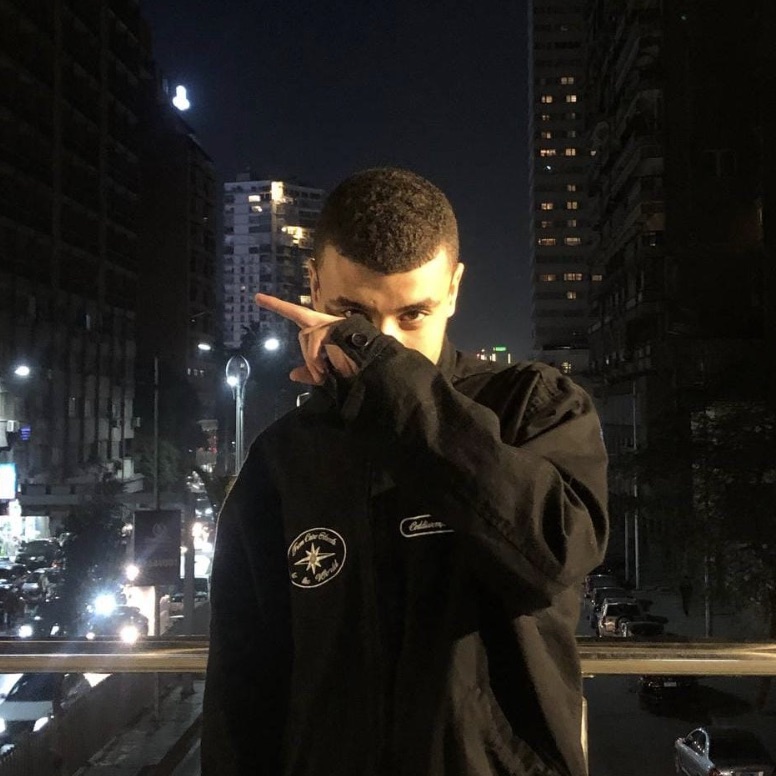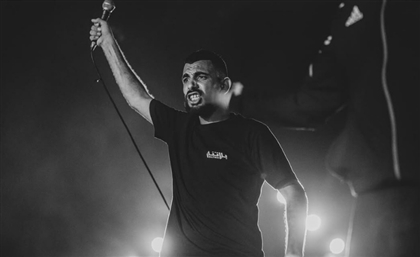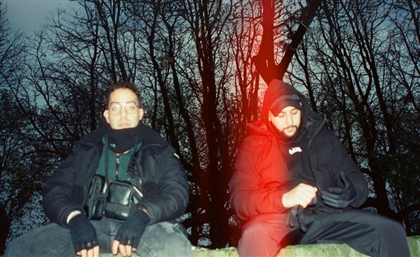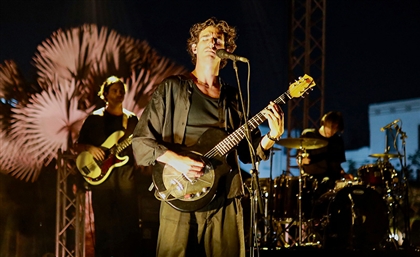Five Years of Shabjdeed & Al Nather’s ‘Sindibad el Ward’
On its fifth anniversary, we look back at Palestinian artist Shabjeed’s iconic album, which marked a milestone for Arabic hip-hop.
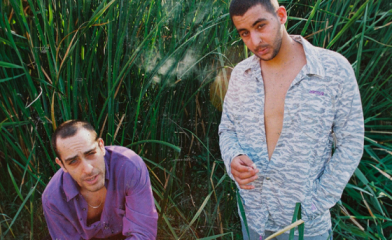
I first came across Shabjdeed through the track ‘Do’ Do’ Do’’ with Haykal and Al Nather. I felt like I had never heard anything of this quality before in Arabic hip-hop. The song was exceptionally well-recorded, which was rare at the time in the Arab scene. Shabjdeed was starting to gain some recognition among core rap listeners, so I took it upon myself to discover more of his work and began eagerly consuming his previous music.
Understanding everything Shabjdeed was saying was challenging, but it didn't matter much. The duo of Shabjdeed and Al Nather had taken trap music into uncharted territory, where the sounds were unfamiliar, and Shabjdeed's flow was melodically unique in a distinctly Arabic style - something entirely new. Al Nather's beats were dominated by a mysterious, gloomy atmosphere, predominantly by synthesizers, which contrasted with Shabjdeed's nonchalant and spontaneous energy, creating a treasure trove for my ears. I remember listening exclusively to Shabjdeed for over three months. Then, in August of that same year, 2019, Shabjdeed and Al Nather released their debut album, ‘Sindibad el Ward’, marking a milestone for Arabic hip-hop.
The album ‘Sindibad el Ward’ spread like wildfire among rap purists. This Palestinian rapper who calls himself Shabjdeed was delivering verses that spoke of himself and no one else, with an intriguingly nonchalant style. His bars were laced with an underlying sarcasm about everything and anything. The track 'NKD GLG' in particular became like an anthem we would recite daily, and the album's title track introduced the alter ego of Sindibad, a character Shabjdeed created to document his life between Jerusalem and Kufr Aqab.
From the very first track of the album, Shabjdeed presents himself through a serious monologue, delivering verses that oscillate between poetry and the Palestinian dialect. Some of these verses could serve as timeless slogans, and many have stayed with me since I first heard them. "Don’t die before you become a rival / We’d rather eat shit than take dirty money / We stand like mountains against crushers." Then, he announces the debut album ‘Sindibad el Ward’ and declares war on the enemy, wishing listeners enjoyment without boredom or fatigue, ending with a salute.
Although Al Nather's production had already reached a high level in tracks and short projects preceding ‘Sindibad el Ward’, he emerged in the album as a seasoned music producer with a distinct voice and a conceptual approach to sound production. He created a cohesive sonic unity that flowed seamlessly from one track to the next. Al Nather moulded trap elements into his own unique style, and sound engineer Heba Kadry added her stamp of quality to his production through the mastering process.
From the second track of the album, Shabjdeed's verses began to flow like an unstoppable torrent - words that were personal in their writing, painting Shabjdeed's world through scattered bars about his character, his ordinary life, his days in an occupied land. Yet, he doesn’t claim to be a hero fighting for its liberation. He rejects the Western perspective, and his words are often political in a natural, unforced way. Shabjdeed opens 'Arab Style' with bars in English, delivered with a thick Arabic accent that he doesn't try to soften, revealing an honest vision of what a young Palestinian experiences living under occupation. He's adapted to it, perhaps even accepted it, but his identity remains intact.
"We don’t do this gang shit
We’re family Arab style
Occupation is my trademark
War zone is where I die."
I remember repeating most of the album’s verses daily. Every song, every verse, every hook stuck with me at some point. The album, with each listen and over time, strangely grew in quality. Of course, the mixing and mastering played a crucial role, but Shabjdeed's lyrics themselves revealed different sides and meanings each time, connecting you deeper with his personality and life.
Shabjdeed's lyrics stemmed from a raw emotional experience - someone trying to survive alongside his crew, BLTNM. He is indifferent, with a dark sense of humour, and has the ability to translate his raw thoughts smoothly onto paper without any filtering process. At times, he boasts about himself, at other times, he is defeated, hungry for more, and resistant to the occupation. These contradictions present Shabjdeed as an artist with a complex and honest identity. In the track 'Madrasah', he declares, "Shabjdeed has become a military school," and in the same song, he raps about his self-hatred and broken heart. This contrast between pride and vulnerability paints a diverse picture of Shabjdeed and his world.
The BLTNM collective also played a significant role in energising the Arab hip-hop scene. Founded by Shabjdeed and Shabmouri, with Al Nather joining later, the group released several projects by Shabjdeed and Al Nather before the album. However, ‘Sindibad el Ward’ is what truly put the group on the map in the Arab music scene and marked a turning point in the region's hip-hop industry.
Shabjdeed’s vocal delivery had a distinct character, rapping in a genuinely Arabic style. His lyrics predominantly featured Palestinian slang, interspersed with razor-sharp Arabic poetry. In tracks like ‘Mantika’, Shabjdeed’s melancholic mindset comes to the forefront as he reflects on the toll of living in a warzone your entire life, stating, “We were nursed on war.” In ‘Wlad Quds’, he doesn’t embrace a narrative of victimhood; instead, he’s aggressive, ready to die for his land, critical of the occupation and its conditions, and as politically charged as ever. Meanwhile, in ‘Bombakshen’, he becomes introspective, nostalgic and contemplative.
The alter ego of Sindibad and the world he created resonated deeply with me. The album taught me Palestinian slang, told me about everyday life for a Palestinian, and has stayed with me for the past five years without losing its impact, fulfilling Shabjdeed’s words in the album’s intro. The album stands now as one of the most raw and unfiltered experiences in Arabic hip-hop, a milestone in recording quality and beat-making, and exceptional in terms of lyrical and vocal performances.
Trending This Week
-
Sep 08, 2025







